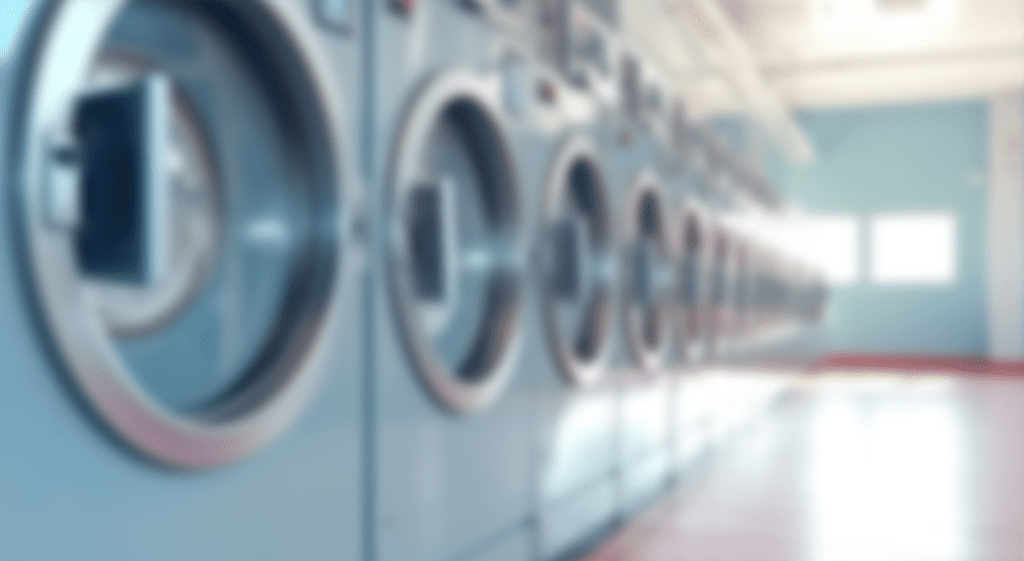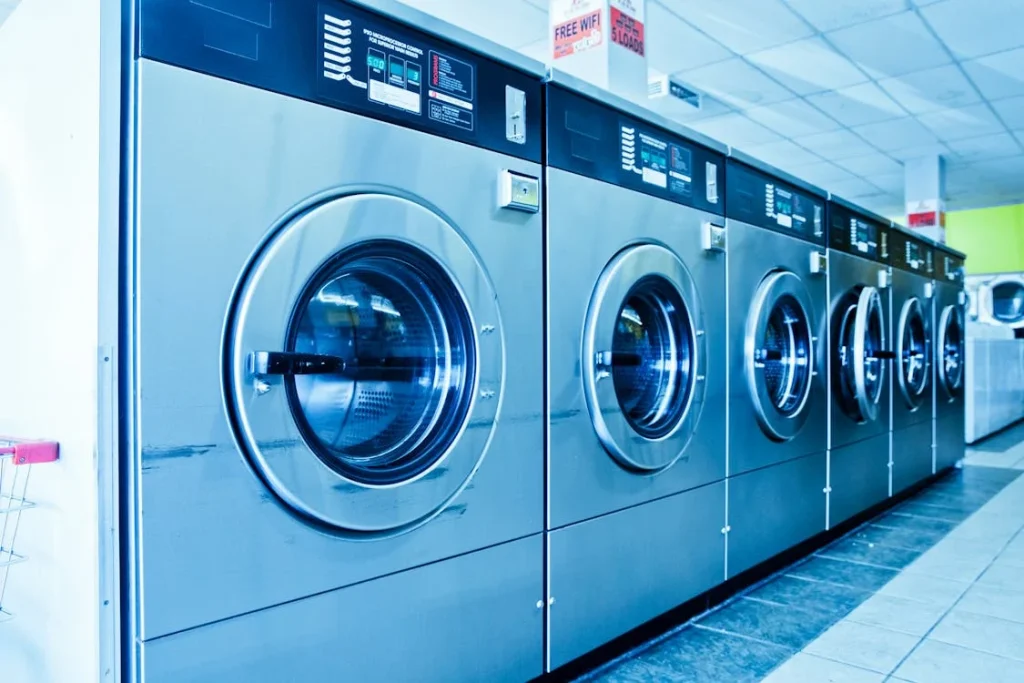Industrial laundries take care of everything from towels to uniforms, and they do it on a massive scale. But just like your home laundry, industrial laundries have their limitations. Not everything can be tossed into a machine. Understanding what can and cannot be washed is crucial for both the longevity of your items and the efficiency of the laundry process.
Tabla de contenidos
- 1. Understanding Industrial Laundry Machines
- 2. Materials That Are Safe to Wash in an Industrial Laundry
- 3. Materials That Should Not Be Washed in an Industrial Laundry
- 4. How to Properly Prepare Items for Industrial Laundry
- 5. Common Mistakes to Avoid in Industrial Laundry
- 6. The Role of Chemicals and Detergents in Industrial Laundry
- 7. Conclusion: Maximize Your Industrial Laundry Experience
- 8. FAQs

1. Understanding Industrial Laundry Machines
Before we talk about what you can or cannot wash, it’s essential to know how industrial laundry machines work. These machines are built for heavy-duty tasks. They differ significantly from your household washer in both size and power.
1.1. How Industrial Laundry Machines Differ from Regular Machines
Industrial laundry machines are designed to handle large quantities of fabric at once. They’re much more robust, with larger capacities, higher water temperatures, and stronger detergents. Their primary goal is to clean more efficiently and faster, making them perfect for industries like hospitality, healthcare, and manufacturing.
1.2. Benefits of Industrial Laundry Machines
What makes these machines so effective? It’s the combination of efficiency, speed, and sheer power. They can clean large volumes in less time, and they offer a level of cleanliness that regular machines just can’t match. Plus, they are built to withstand the wear and tear of heavy use, making them a long-term investment for businesses.
2. Materials That Are Safe to Wash in an Industrial Laundry
When using an industrial laundry machine, it’s essential to understand the types of materials that can safely go through the process.
2.1. Fabrics and Textiles
Cotton, linen, polyester, and most synthetic fabrics are all safe for industrial washing machines. These materials are durable and can withstand the high temperatures and heavy-duty washing cycles typical of commercial laundry. In fact, cotton sheets, towels, and clothing are some of the most commonly washed items in industrial laundries.
2.2. Uniforms and Workwear
Many industries rely on industrial laundries for their uniforms and workwear. These clothes often require heavy-duty cleaning, particularly in environments like factories, kitchens, and healthcare settings. Industrial washers can handle oil stains, dirt, and other tough grime, restoring these garments to a fresh, clean state.
2.3. Towels and Bed Linens
Hotels, hospitals, gyms, and spas rely heavily on industrial laundries to wash towels, bed linens, and other fabric items used in their day-to-day operations. These items require high sanitation standards and the ability to handle large volumes, which is why they’re a perfect fit for industrial laundry services.
2.4. Protective Gear
From aprons to gloves, industrial laundries are equipped to clean protective gear used in a variety of industries. These items can get heavily soiled with oils, grease, and chemicals, but industrial washing machines are built to handle these types of contaminants, ensuring they’re safe and hygienic for the next use.
2.5. Rugs and Mats
Industrial laundries also handle heavy-duty cleaning tasks like washing rugs and mats. Think about the types of mats found in factories, offices, or public spaces—these can accumulate dirt, dust, and debris. Industrial machines, along with specialized detergents, can restore these items, making them look as good as new.
3. Materials That Should Not Be Washed in an Industrial Laundry
While industrial machines are powerful, they aren’t suitable for everything. Some materials and items can get damaged or cause problems during the cleaning process.
3.1. Delicate Fabrics
Wool, silk, and other delicate fabrics are best kept out of industrial washers. These materials can shrink, lose their shape, or become damaged due to the intense washing conditions. For delicate items, it’s best to use a gentler machine or hand wash them.
3.2. Leather and Suede
Leather and suede are notoriously tricky to clean. Industrial laundry machines are typically too harsh for these materials, which can dry out, crack, or lose their texture. It’s important to treat leather and suede items with care by using specialized cleaning methods.
3.3. Electronics and Fragile Items
Electronics, such as hearing aids, phones, and other fragile items, should never be placed in an industrial washing machine. These items could get destroyed by the water and agitation. Always double-check pockets and bags before sending items to the laundry.
3.4. Hazardous Materials
Anything that contains hazardous chemicals or biological contaminants should be kept out of industrial laundry machines. This includes things like cleaning rags soaked in harmful chemicals or uniforms exposed to biological waste. Special cleaning protocols are required for these items to ensure safety.
3.5. Items with Zippers, Buttons, or Other Delicate Fasteners
While most industrial laundry machines are durable, zippers and buttons can get caught in the machinery. Items like jackets or pants with delicate fasteners may get damaged during the wash. It’s advisable to remove or protect such items before washing them in an industrial machine.
4. How to Properly Prepare Items for Industrial Laundry
To ensure your items are cleaned properly without any issues, proper preparation is essential.
4.1. Sorting by Fabric Type
Sorting your laundry by fabric type is critical to avoid damage. For example, heavy fabrics like towels should be washed separately from delicate items like sheets. Sorting ensures that each fabric gets the right wash cycle for its specific needs.
4.2. Checking for Special Care Requirements
Always check the care instructions on labels before sending items to industrial laundry. Some fabrics may require specific detergents or washing conditions that differ from the standard.
4.3. Removing Large Debris
Before sending items to the industrial laundry, remove large debris like food crumbs, dirt, or sand. This helps prevent clogging the machines and ensures a more effective wash.
5. Common Mistakes to Avoid in Industrial Laundry
Avoid these common mistakes to ensure the longevity of your items and the proper functioning of your machines.
5.1. Overloading the Machine
While it might seem efficient to fill up the machine to capacity, overloading can actually lead to subpar cleaning results. Machines work best when they have enough space to agitate the fabric properly.
5.2. Ignoring Fabric Specifics
Not all fabrics are the same, and ignoring care instructions can lead to damage. Always take the time to check the specifics of each fabric type before washing.
6. The Role of Chemicals and Detergents in Industrial Laundry
The detergents and chemicals used in industrial laundry are specifically formulated to tackle large volumes and tough stains. However, it’s important to choose eco-friendly options whenever possible.
6.1. Types of Detergents Used
Industrial laundries use a variety of detergents, from basic cleansers to specialized stain removers. These detergents are much stronger than household varieties, ensuring that even the toughest stains are eliminated.
6.2. Environmental Considerations
Many industrial laundries are adopting more sustainable practices by using eco-friendly detergents and reducing water consumption. These green initiatives help reduce the environmental footprint of industrial cleaning operations.
7. Conclusion: Maximize Your Industrial Laundry Experience
Knowing what you can and cannot wash in an industrial laundry will help you save time, money, and avoid unnecessary damage to your items. Whether you’re running a hotel or managing a factory, proper laundry practices ensure cleanliness and safety for everyone. If you’re unsure about an item, it’s always a good idea to ask your laundry service provider. They’ll be able to guide you on the best way to care for your materials.
8. FAQs
Can I wash wool items in an industrial laundry?
Wool items should be hand-washed or dry cleaned. Industrial machines are too harsh for wool and could cause shrinkage or damage.
What happens if I overload an industrial laundry machine?
Overloading the machine can lead to poor cleaning results, cause damage to the machine, and may result in unwashed areas on fabrics.
Is it safe to wash my leather jacket in an industrial laundry machine?
No, leather should never be washed in an industrial machine. It can dry out and crack. Use a specialist cleaner for leather goods.
What types of protective gear can be washed in industrial laundry?
Industrial laundry machines can wash most protective gear, such as aprons, gloves, and coveralls, but check for specific care instructions.
Should I remove items like keys or phones before sending laundry to industrial machines?
Yes, always remove items like keys, phones, or anything with electronic components before sending items to the laundry.
Here are some other articles that we think might interest you:
Environmental Impact of Industrial Laundry


